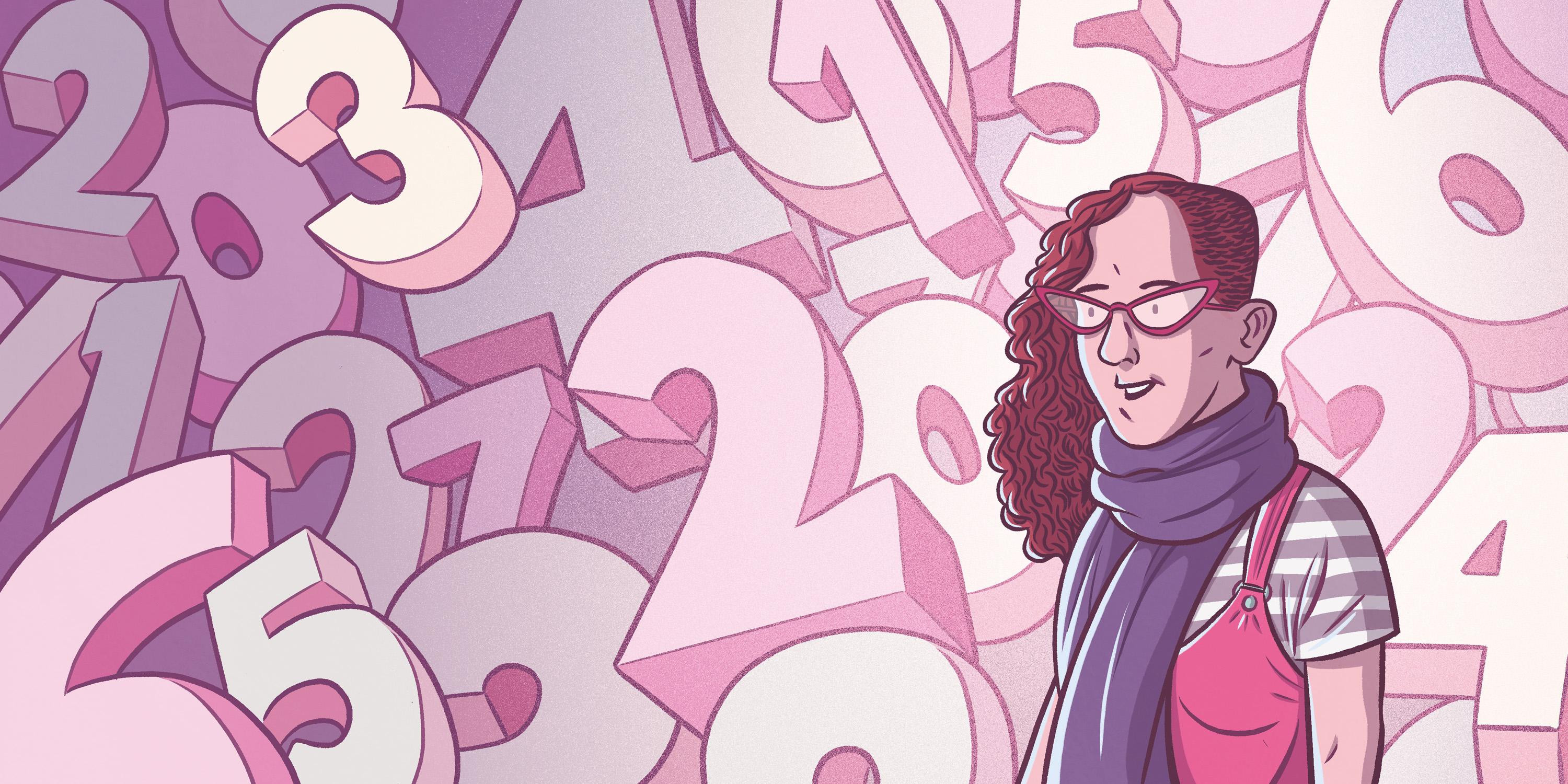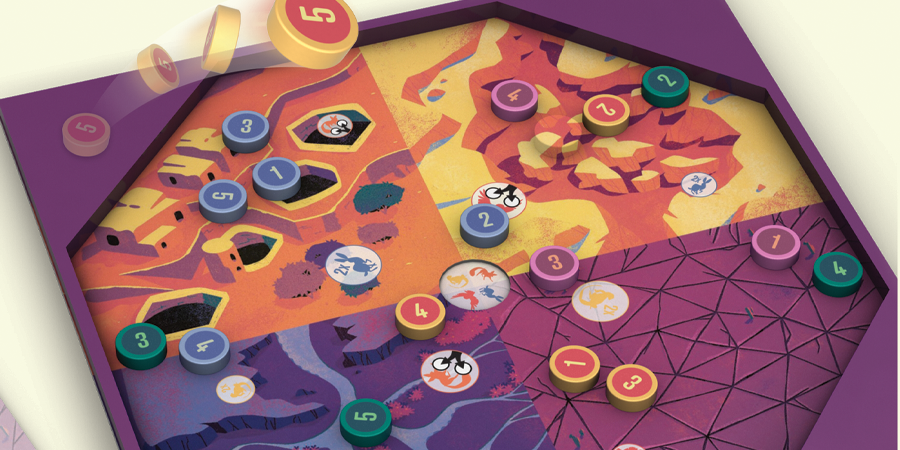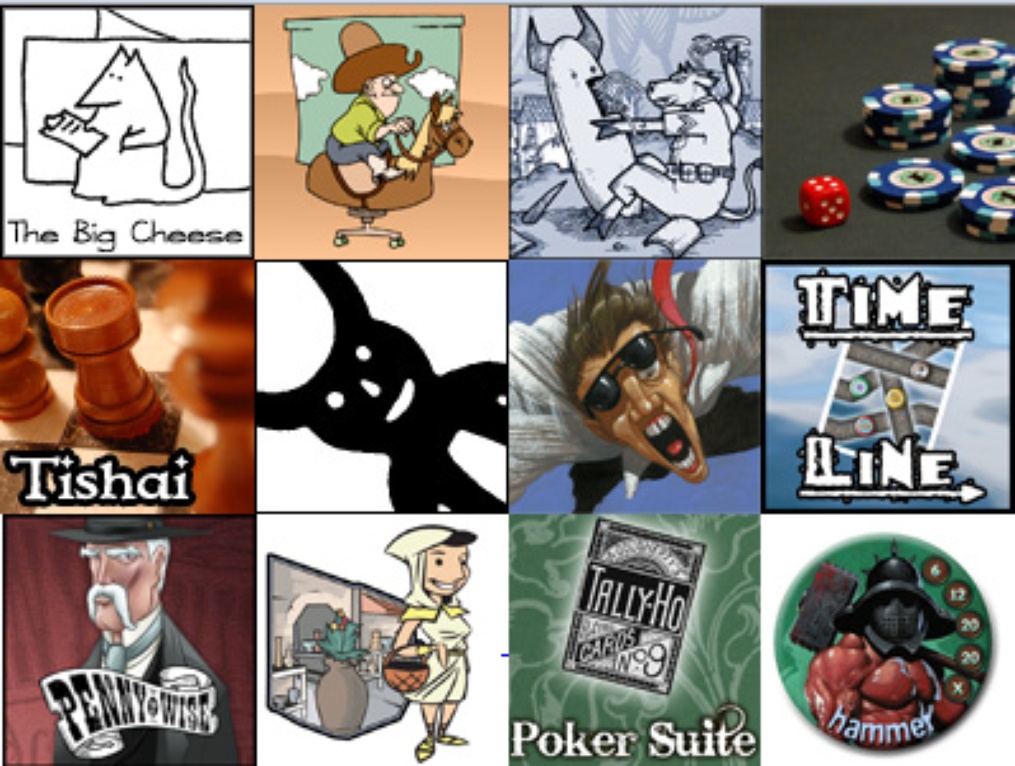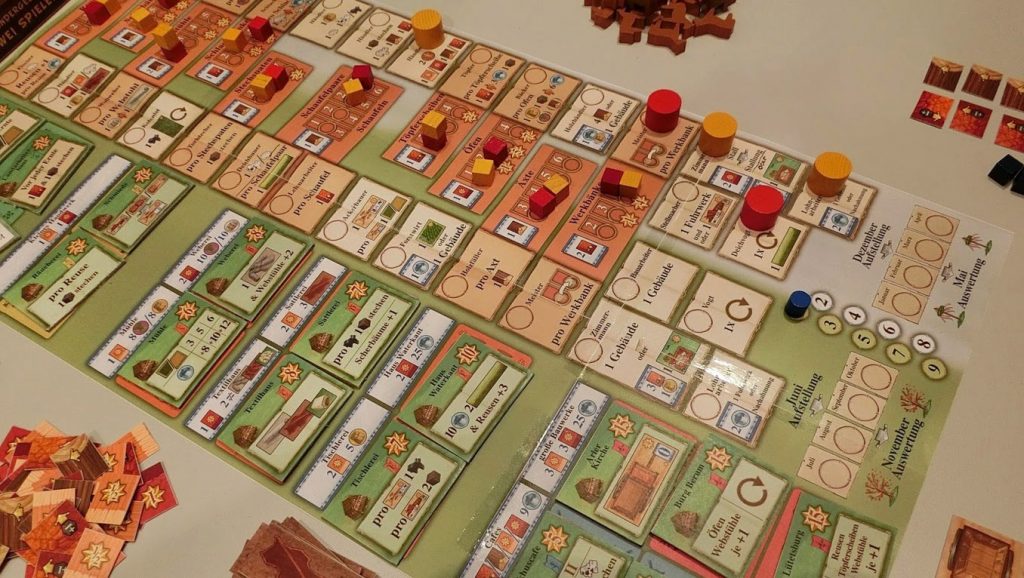[Introducing a new bi-weekly column! In Tactics & Tactility, Ava Foxfort will be exploring the culture and magic of tabletop, accompanied by fabulous illustrator Tom Humberstone. The series began its life on this blog, and we feel privileged to offer it a new home.]
Ava: I can see all the numbers in front of me. Power Grid lays out every variable incredibly clearly. So many numbers, spread out in stout cables across the board, paper money rustling in my hand, and adorable little power stations. Every number is ready for taking, and there’s just no way I can get them all into my head.
Good evening, folks, it’s time to watch my brain slowly crumble.
We talk a lot about how games are made up of interesting decisions. We don’t talk much about exactly what makes a decision interesting. It’s one of those quasi-mystical parts of game criticism: what makes one decision too easy, and another ‘fun’. The answer isn’t always ‘lots of things to add up’, but when lined up just right, that can be enough.
Power Grid is a game I never want to teach anyone, and I never want to show anyone. The board is a full platter of writhing numbers, like someone made tagliatelle with a spreadsheet. The game is off-putting, overwhelming, full of dangerous little details and very, very tasty.
Every number can be nudged by the whims of other players – building where you wanted, buying what you wanted, or bidding more than you wanted. It doesn’t just ask you to do a load of maths, it asks you to do that maths competitively. It throws an auction at you and asks you, over and over again ‘are you sure you can’t afford just a little more? Are you sure you can’t make just a little more money?’
It’s painfully cruel, and it’s wonderful. A crunchy bundle of brain-overwhelming joy.
I am not the sort of person who can hold onto all those numbers.
The truth is, you don’t have to work everything out as accurately as the concrete numbers on every component imply. This is business, this is your gut. You’ve got to keep an eye out for the moments where the market has shifted, or is about to shift. Work out if you want to make your big push this turn, or next turn.
Some of my favourite games look like they need a mathematical occultist to piece together, but work best if you act on instinct. Get a rough sense of what you’re trying to do, and roll with the punches. There’s a joy in letting your brain quieten down and trusting your heart.
Less so when your brain is screaming at you to think again.
Games like this flood you with information. They pour possibilities all over you, give you options and numbers and routes and objectives. They let you think you can grab hold of these writhing numerical tentacles, and wrestle them back onto the table.
Games let you make a decision, put a piece down, or shout out a number in an auction, and immediately regret it. An interesting decision is one that, after you make it, you yell in agony. Agony and hope.
Games make you care about things you never thought you would care about. Flat bits of cardboard, scraps of paper, little lumps of plastic, and the numbers that link them all together. They can make you unbelievably invested in getting the right fuel to power little wooden houses scattered across a number drenched German cityscape.
There’s magic in those numbers, magic in trying to hold them together, trying to keep everything in your head and make it click. Wrestling numbers into plans into plays. Making mistakes that you care about. Not knowing if you could’ve added your way out of it.
That joyful agony is what games are all about. There’s nothing like sitting with your friends while everyone’s brains slowly crumble. Revelling in each others mistakes and successes. Spitting out numbers like broken calculators, then giving up and letting your gut take hold.
It’s those joys that make games what they are. Shared puzzles, shared moments, hoots and yells and meaningful, contemplative, mathematical silences. It all adds up to a tableful of drama: interesting decisions and agonising mistakes.
So, folks, I want to hear about your stories. Tell me about those times you’ve gone with your gut, given up on maths, and found glory in it. Which games make you spring out the calculator, and which make you switch off the targeting computer?
Tactics & Tactility is illustrated by Tom Humberstone.




